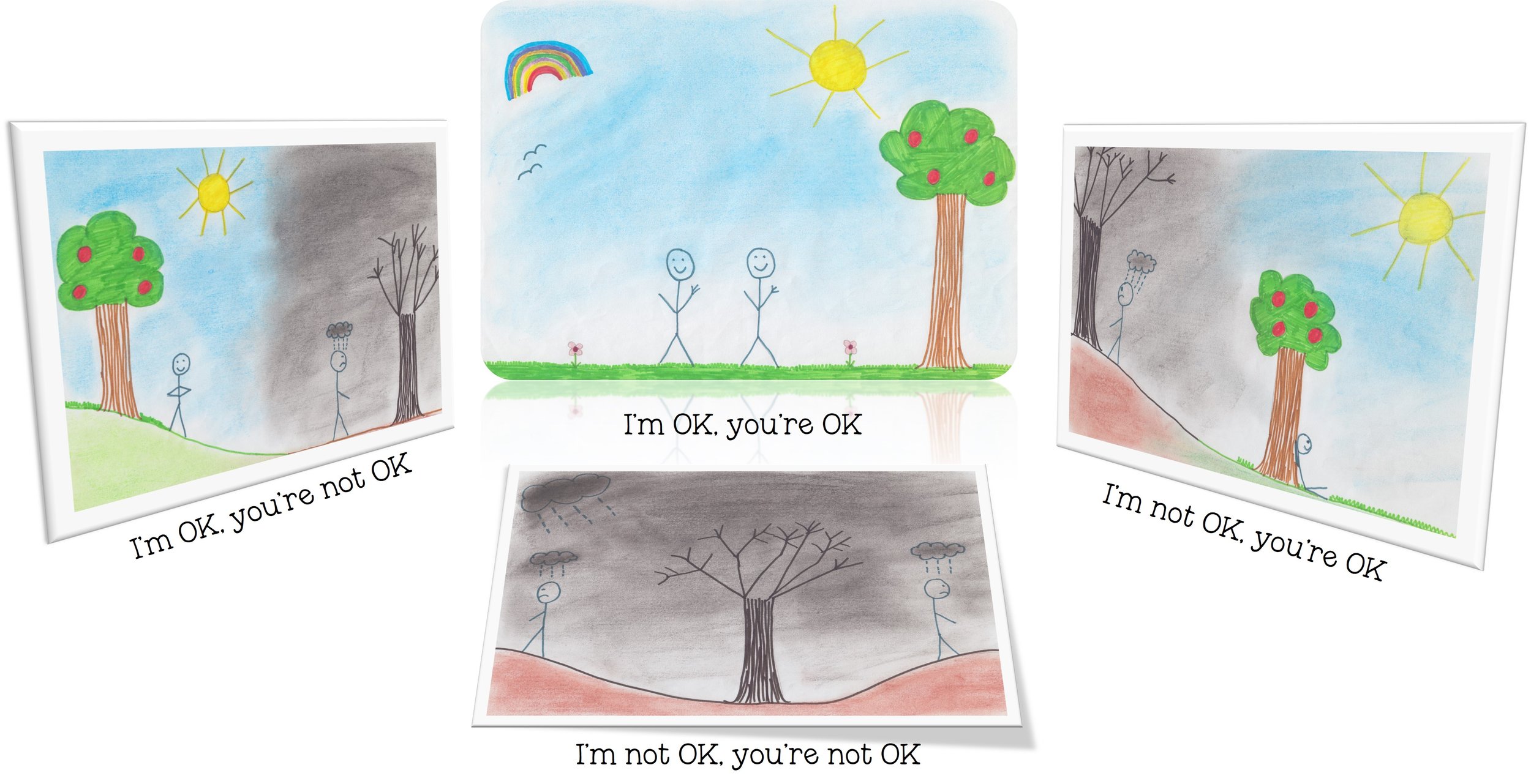
We can use this framework to communicate more effectively
When we operate from an ‘I’m OK, you’re OK’ perspective, all parties involved feel respected and heard. We’ll allow other people space to speak, without interrupting or talking over them. We’re open to taking in and considering new information. Indeed, we’re able to listen and we seek to understand. Whilst we might not agree with others’ opinions, we respect their right to have them. We can discuss difficult topics in a calm and rational manner.
By holding an ‘I’m OK, you’re OK’ perspective as our ideal way of communicating, we can learn to recognise when we’ve moved away from this position and consider what needs to change to return to it.
The more self-awareness we have, the easier it becomes to notice what’s happening when we communicate with others
‘I’m OK, you’re OK’
Of course, it’s not always possible to remain in an ‘I’m OK, you’re OK’ perspective. People press each other’s buttons! Sometimes we might feel so passionately about a topic that it’s difficult not to become angered and express this in an unproductive way; we might raise our voices, shout at people, talk down to them and stop listening. We might find ourselves feeling inferior in some way and become defensive, making snide comments, or using sarcasm. Even with the best of intentions, we can find ourselves feeling ‘not OK’ and express this in a way which closes effective communication down.
Find ways to do things differently






